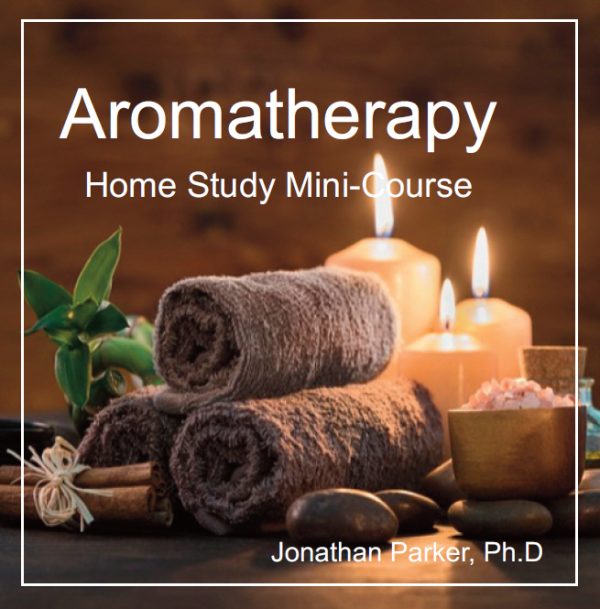How to Choose Quality Essential Oils

Looking for more amazing products? Check out our online store and explore our collection here! Happy shopping!
Before diving in, please note: This post is for informational purposes only. If you’d like to know more about how we approach topics, feel free to check out our friendly Disclaimer Page.
Hey there, amazing readers! 
We’re committed to delivering quality posts, and your support (even just sticking around despite the ads) means everything to us. So, bear with us, and thanks for helping us keep the good vibes rolling. Now, on to the fun stuff!
TRANSLATE BUTTON AT THE END OF THE ARTICLE
A Quick Overview
Choosing quality essential oils can feel like stepping into a fragrant wonderland.
With so many options available, the process might seem overwhelming.
However, understanding what makes an essential oil high-quality can help you make informed choices that enhance your wellness routine.
Essential oils can bring joy, relaxation, and benefits to our lives, so let’s dive into what you need to know to pick the best ones for your needs.
Understanding Essential Oils: A Beginner’s Guide
Essential oils are concentrated extracts from plants, capturing their natural fragrance and therapeutic properties.
They come from various parts of the plant, including leaves, flowers, bark, and roots.
The extraction process can vary, but the goal remains the same: to harness the essence of the plant in a bottle.
When you first encounter essential oils, it’s easy to get lost in the sheer variety.
From lavender to eucalyptus, each oil carries its own aroma and potential benefits.
Lavender, known for its calming effects, is a favorite for sleep, while peppermint can boost alertness and concentration.
I remember the first time I inhaled a bottle of sweet orange oil, and the sunshine it brought into my space was simply irresistible.
Essential oils can be used in various ways, such as aromatherapy, massage, and skin care.
They can also be blended for a unique scent or therapeutic effect.
However, not all oils are created equal.
Understanding their quality can be the key to unlocking their true potential.
The Importance of Quality in Essential Oils
Quality is paramount when it comes to essential oils.
Low-quality oils can be diluted or adulterated with chemicals, which can diminish their effectiveness.
Using subpar oils might not only waste your money but could also lead to adverse reactions on your skin or in your wellness practices.
High-quality oils are typically pure and derived from the right plant parts, extracted through methods that preserve their natural properties.
I once bought a bottle of a cheaper oil, and the synthetic scent was so far from what I expected that it went straight to the back of my cabinet.
Quality oils deliver the true essence of the plant, offering an authentic experience.
Additionally, quality oils are more likely to provide the benefits you’re seeking.
Whether you’re looking for relaxation, energy, or respiratory support, a high-quality oil will perform better than its low-grade counterpart.
Remember, you’re not just buying a scent; you’re investing in your well-being.
Distinguishing Between Pure and Synthetic Oils
One of the first things to know is whether the oil you’re considering is pure or synthetic.
Pure essential oils are extracted directly from plants without any additives or alterations.
Synthetic oils, on the other hand, are created in laboratories and often have a similar scent but lack therapeutic properties.
To tell the difference, trust your nose and the label.
Pure oils typically have a stronger, more complex aroma compared to synthetic oils, which can often smell one-dimensional.
For instance, I’ve found that pure peppermint oil has a refreshing depth that synthetic versions simply can’t replicate.
Discover "Beginner's Guide to Essential Oils"
Also, read the ingredients.
If the label lists “fragrance” or “parfum,” that’s a red flag.
You want to see the botanical name of the plant, like "Lavandula angustifolia" for lavender.
The more transparent the brand, the better.
Reading Labels: Key Ingredients to Look For
When shopping for essential oils, a detective approach to reading labels is essential.
Here are some things to look for:
Botanical Name: Always check for the scientific name.
It confirms you’re getting the right plant.
Country of Origin: Knowing where the oil comes from can indicate its quality.
Some regions are famed for their essential oil production, like France for lavender.
Extraction Method: Look for terms like “steam distilled” or “cold pressed.” These processes typically yield higher quality.
Purity Claims: Some brands will state “100% pure” or “therapeutic grade.” While these terms aren’t regulated, they can be good indicators.
Batch Number: A batch number can show if the oil has been tested for quality and can be traced back to its source.
Taking these details into account can help you avoid subpar products.
Don’t be afraid to ask questions or contact the brand if you need clarification.
The Role of Scent: Why Aroma Matters
The aroma of essential oils plays a crucial role in their effectiveness.
Our sense of smell is closely tied to our emotions and memories, so the right scent can have powerful effects on mood and well-being.
For example, the scent of bergamot can uplift spirits, while chamomile can promote relaxation.
When choosing an essential oil, trust your instincts.
If you find a scent that resonates with you, it’ll likely enhance your experience.
Personally, I can’t resist the uplifting power of citrus oils.
Just a whiff of lemon or grapefruit can brighten my day.
However, keep in mind that everyone’s scent preferences are different.
What calms one person might be overwhelming to another.
Consider trying small samples before committing to a larger bottle, so you can find what truly speaks to you.
Sourcing Matters: Where Your Oils Come From
The source of your essential oils can heavily influence their quality.
Different regions have varying climates, soil conditions, and cultivation practices that can affect the plants used for extraction.
For example, the best lavender comes from the high altitudes of Provence in France, where the climate is perfect for growing fragrant blooms.
Brands that are transparent about their sourcing practices are generally more trustworthy.
Look for companies that support sustainable farming practices and fair trade, as this not only benefits the environment but also contributes to higher quality oils.
When I learned about a company that sourced its oils from small, family-owned farms, I felt more connected to my purchase.
Supporting sustainable practices can also give you peace of mind knowing you’re doing your part for the planet.
Certifications: What to Look For in Quality Oils
Certifications can be a helpful guide when evaluating essential oils.
While not mandatory, certain certifications indicate a commitment to quality.
Here are a few to consider:
USDA Organic: This certification means the oil has been produced without synthetic fertilizers or pesticides.
COSMOS: An international certification for natural and organic cosmetics which assures adherence to high standards.
Non-GMO: Ensures that the oil comes from plants that haven’t been genetically modified.
It’s worth noting that while certifications can be helpful, they aren’t the only indicator of quality.
A brand can have all the certifications but still lack transparency in sourcing or extraction.
Combining certifications with thorough research can lead to better choices.
Exploring Different Extraction Methods Explained
The extraction method plays a vital role in the quality of essential oils.
Here are some common methods:
Steam Distillation: This is the most common method, where steam passes through the plant material, extracting essential oils.
It retains the oil’s medicinal properties.
Cold Pressing: Often used for citrus oils, cold pressing involves mechanically squeezing the plant to extract oils without heat, preserving the fragrance and benefits.
Solvent Extraction: A method commonly used for delicate flowers, this involves using a solvent to extract the oil.
It can produce a fragrant product, but may leave behind chemical residues.
CO2 Extraction: This method utilizes carbon dioxide under high pressure to extract oils.
It’s considered one of the best methods as it maintains the integrity of the oil.
Understanding these methods can help you appreciate the hard work behind your bottle of oil.
Each method has its pros and cons, and knowing them can help you make a better choice.
Price vs. Quality: Finding the Right Balance
Let’s talk money.
Essential oils come in a wide range of prices, and it’s tempting to go for the cheaper option.
However, remember that quality often comes at a price.
Lower-priced oils might be diluted or synthetic, which means they won’t deliver the benefits you’re after.
That said, price doesn’t always guarantee quality.
It’s essential to do your research and find brands that strike a balance between affordability and purity.
I’ve found that mid-range oils can often perform just as well as high-end brands, especially when sourced from reputable companies.
Consider sampling smaller bottles to test effectiveness before investing in larger quantities.
Keeping an open mind can lead to discovering fantastic oils that fit your budget.
Customer Reviews: Learning from Other Users
Never underestimate the power of customer reviews!
They can offer insights that aren’t available on product labels.
Look for reviews that discuss the oil’s effectiveness, scent, and even the seller’s customer service.
I remember finding a small company with glowing reviews about their lavender oil, and after trying it, I understood why.
Pay attention to patterns in reviews.
If several customers mention that an oil has an odd scent or doesn’t provide the promised benefits, it’s likely worth skipping.
Conversely, if a product consistently receives rave reviews, it’s likely a safe bet.
Also, look for reviews on independent platforms rather than just the brand’s website.
This can provide a more balanced view.
Trustworthy Brands: Recommendations for Quality Oils
Choosing a reputable brand can make a world of difference.
Here are some brands I trust and recommend for quality essential oils:
doTERRA: Known for their commitment to purity and sourcing, their oils are popular among aromatherapy enthusiasts.
Young Living: They have a long track record in the industry and a wide range of quality oils.
Plant Therapy: This brand is known for affordable, high-quality oils and extensive educational resources.
Eden’s Garden: They offer a huge selection of oils and are recognized for their transparency and sustainability efforts.
These brands have built strong reputations based on quality and trust.
Always keep in mind that personal experience matters.
It’s worth trying a few options to find which brands you resonate with the most.
Storing Your Essential Oils for Longevity
Once you’ve chosen your essential oils, proper storage is vital.
Here are some tips to keep them fresh:
Keep in Dark Glass Bottles: Essential oils can degrade when exposed to light.
Dark glass bottles protect them from UV rays.
Store in a Cool, Dry Place: Heat and humidity can alter the properties of essential oils.
A cool cupboard away from appliances is ideal.
Check for Expiry Dates: While essential oils don’t expire like food, they can lose potency over time.
Keep an eye on the shelf life.
Avoid Frequent Temperature Changes: Consistent temperatures help maintain the oils’ integrity, so avoid storing them near windows or heating vents.
I often find that taking a few moments to ensure proper storage pays off in the long run.
The longer my oils last, the more I can enjoy their benefits.
Conclusion
Choosing quality essential oils doesn’t have to be a complicated process.
With a little knowledge and awareness, you can make informed decisions that bring delight and wellness into your life.
From understanding labels to exploring extraction methods, each step helps ensure you’re getting the best from your oils.
So, go ahead and immerse yourself in the aromatic world of essential oils, and embrace the joy they can bring.
Happy oil hunting!

The Enlightenment Journey is a remarkable collection of writings authored by a distinguished group of experts in the fields of spirituality, new age, and esoteric knowledge.
This anthology features a diverse assembly of well-experienced authors who bring their profound insights and credible perspectives to the forefront.
Each contributor possesses a wealth of knowledge and wisdom, making them authorities in their respective domains.
Together, they offer readers a transformative journey into the realms of spiritual growth, self-discovery, and esoteric enlightenment.
The Enlightenment Journey is a testament to the collective expertise of these luminaries, providing readers with a rich tapestry of ideas and information to illuminate their spiritual path.
Our Diverse Expertise
While our primary focus is on spirituality and esotericism, we are equally passionate about exploring a wide range of other topics and niches 

To ensure we provide the most accurate and valuable insights, we collaborate with trusted experts in their respective domains 
Our blog originally focused on spirituality and metaphysics, but we’ve since expanded to cover a wide range of niches. Don’t worry—we continue to publish a lot of articles on spirituality! Frequently visit our blog to explore our diverse content and stay tuned for more insightful reads.
Hey there, amazing reader! 
Check out our store here and take a peek at some of our featured products below! Thanks for being awesome!
Beginner's Guide to Essential Oils
Dive into the world of essential oils with this easy-to-follow guide! Perfect for anyone starting their journey, this e-book reveals how to use essential oils safely and effectively to enhance your well-being.
Inside, you'll learn:
- The top essential oils for relaxation, focus, and energy.
- Simple DIY recipes for blends, diffusers, and skincare.
- Tips on choosing high-quality oils and proper usage.
Discover the natural way to elevate your mind, body, and home.
Start your essential oil journey today!













